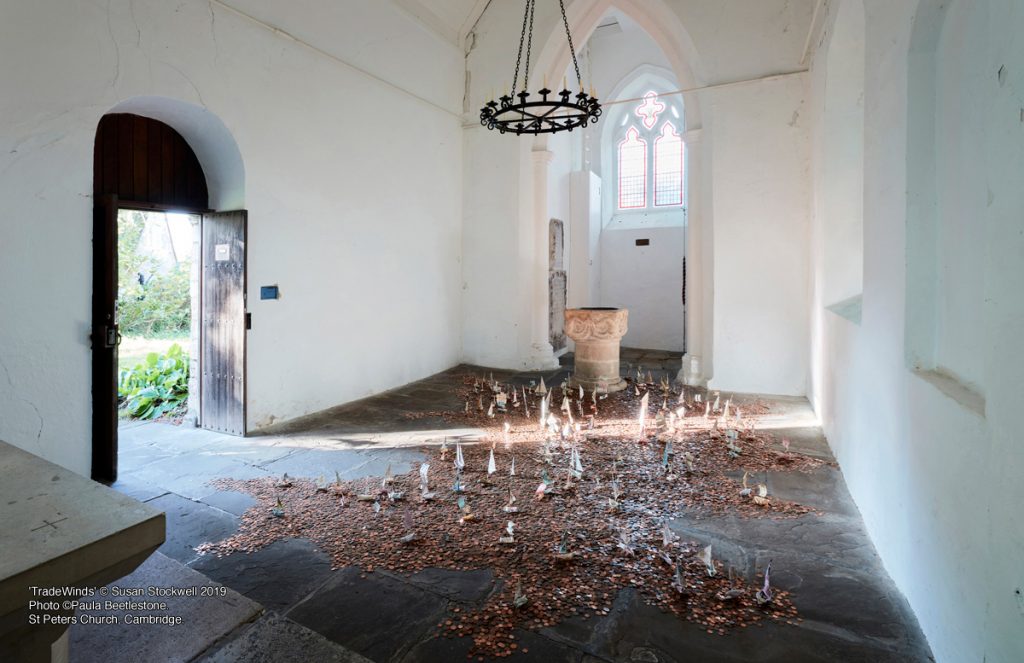Migrant Knowledge, Early Modern and Beyond
Convened by Subha Mukherji, Rowan Williams, Natalya Din-Kariuki and Carla Suthren
By Dr Subha Mukherji
Between clusters of stars
And the borders of a river
Yousif Qasmiyeh
Unattached as tumble weed
W.H. Auden
People, things, ideas and languages have crossed borders since the earliest of times. Such passages have entailed epistemic shifts and encounters, transactions and transformations. A Crossroads of Knowledge initiative, this public event brought together scholars, artists and activists to think about migration and what it does with, and to, knowledge. In tune with the Crossroads project, we began in the early modern world, but moved freely across periods to dwell on the increasingly urgent experience of migrancy in our own times, and what it demands of us. We acknowledged the many meanings of ‘migration’ and ‘knowledge’, to probe the history of their interrelation, and to use our imaginative engagement with crossings of knowledge in its many forms.
Our event included an exhibition, Trade Winds by the artist Susan Stockwell, at St Peter’s Church, Kettle’s Yard.

Made out of coins, international paper currency, maps, text and travel tickets, this sculptural installation explored issues of migration, borders, trade, power, social geography, geo-politics, shifts of global wealth, material culture and our history as a seafaring nation. It asked questions relevant at once to the immediate Brexit conundrum and to the larger world of disturbing political shifts. The work created a quiet space for reflection in which to enjoy the playful, tactile, objects, as well as provoking questions about money and how it shapes our fragile world, our personal relationships with it, and its ecology beyond its everyday, functional role.
Going forward, we are deepening our exploration of the ways in which art addresses, offers or denies the alleviation of refuge; how it claims or defies certain spaces; what it can tell us about the relation between longing and belonging; and how some of the more elusive aspects of knowledge are transacted and embodied in the act of crossing and its imaginative representations. Connecting our historical knowledge with our contemporary reality, we are also thinking through the methodological migrancies that the migrant phenomenon calls for in both art and criticism.
The Crossroads of Knowledge project, led by Subha Mukherji and generously funded by the European Research Council, ran from October 2014 to December 2019. It was hosted jointly by the Faculty of English and CRASSH.
